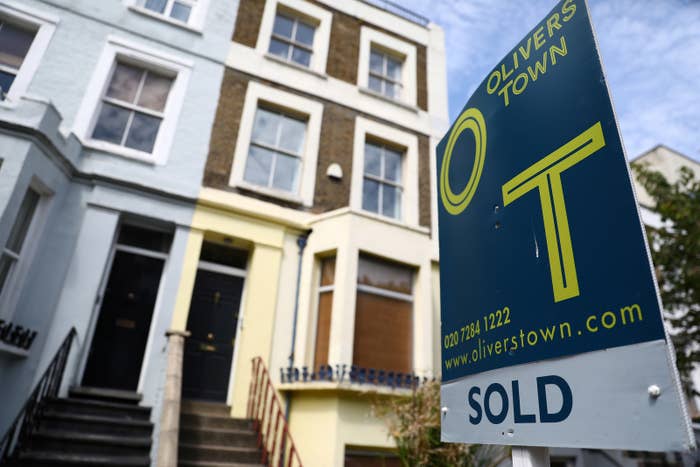
The government has abolished stamp duty for first-time buyers on homes worth up to £300,000, in a bid to make it more affordable for younger people to own their own property.
The move will save the average first-time buyer £1,660, chancellor Philip Hammond announced in Wednesday's Budget.
However, the independent Office for Budget Responsibility said the effect of this stamp duty cut will be an increase in house prices – because first-time buyers will be able to afford bigger deposits.
"Thus the main gainers from the policy are people who already own property, not the FTBs [first-time buyers] themselves," the organisation concluded in its analysis accompanying the Budget.
Stamp duty is a tax levied on the value of a property above £125,000, which has to be paid to the government in cash whenever a property is purchased.
People buying a first home worth between £300,000 and £500,000 will pay some tax but will benefit from a £5,000 discount. For instance, the average first-time buyer in London pays £410,000 for a property, on which they currently pay £10,500 in stamp duty. This will fall to £5,500.
The change comes into immediate effect but will not apply in Scotland, which has its own parallel stamp duty system.
The OBR said that the change will mean first-time buyers can "buy properties that they otherwise could not afford – but more expensively".
In effect, first-time buyers will require less cash up front to buy a property, but will have to take out a bigger mortgage to cover the higher headline price of the home, which is predicted to rise by 0.3%.
"House prices are increasingly out of reach for many, it takes too long to save for a deposit, and rents absorb too high a portion of monthly income," said Hammond, who also pledged to spend billions of pounds increasing housing supply to 300,000 homes a year by the mid-2020s.
He also promised to consult on making it easier for private renters to obtain long-term tenancy agreements with their landlords, to avoid having to move every 12 months.
Critics said the cut in stamp duty does not go far enough and will be of little use to young people who have no savings for a deposit while house prices remain high.
"We’ve been here before," said Labour leader Jeremy Corbyn. "The government promised 200,000 starter homes three years ago and not a single one has been built. We need a large-scale public housebuilding programme, not this government’s accounting tricks and empty promises."
Dan Wilson Craw, director of Generation Rent, said Hammond's plans did not deal with the underlying lack of housing supply.
"This measure might boost homeownership but will do nothing to reduce the fundamental cost of housing," he said.
"In areas where first-time buyers are competing with investors for homes, no stamp duty to pay will give them more purchasing power. But where they’re competing with each other it just means they have more cash with which to make an offer. The real winners are people with property to sell."
Hammond's spokesperson defended the policy: "We don’t think that £1,600 on average for a million people over the next five years is a small move at all."
"The chancellor was clear that he’s making a commitment to doing whatever it takes and this is the first step. And getting all the cash together to get on the housing ladder is a problem, it’s a liquidity thing and this is a step to helping these people who find that the final barrier. They’ve saved for a long time, the goal seems many years away and this could help them."
